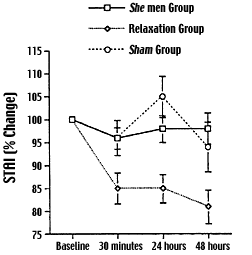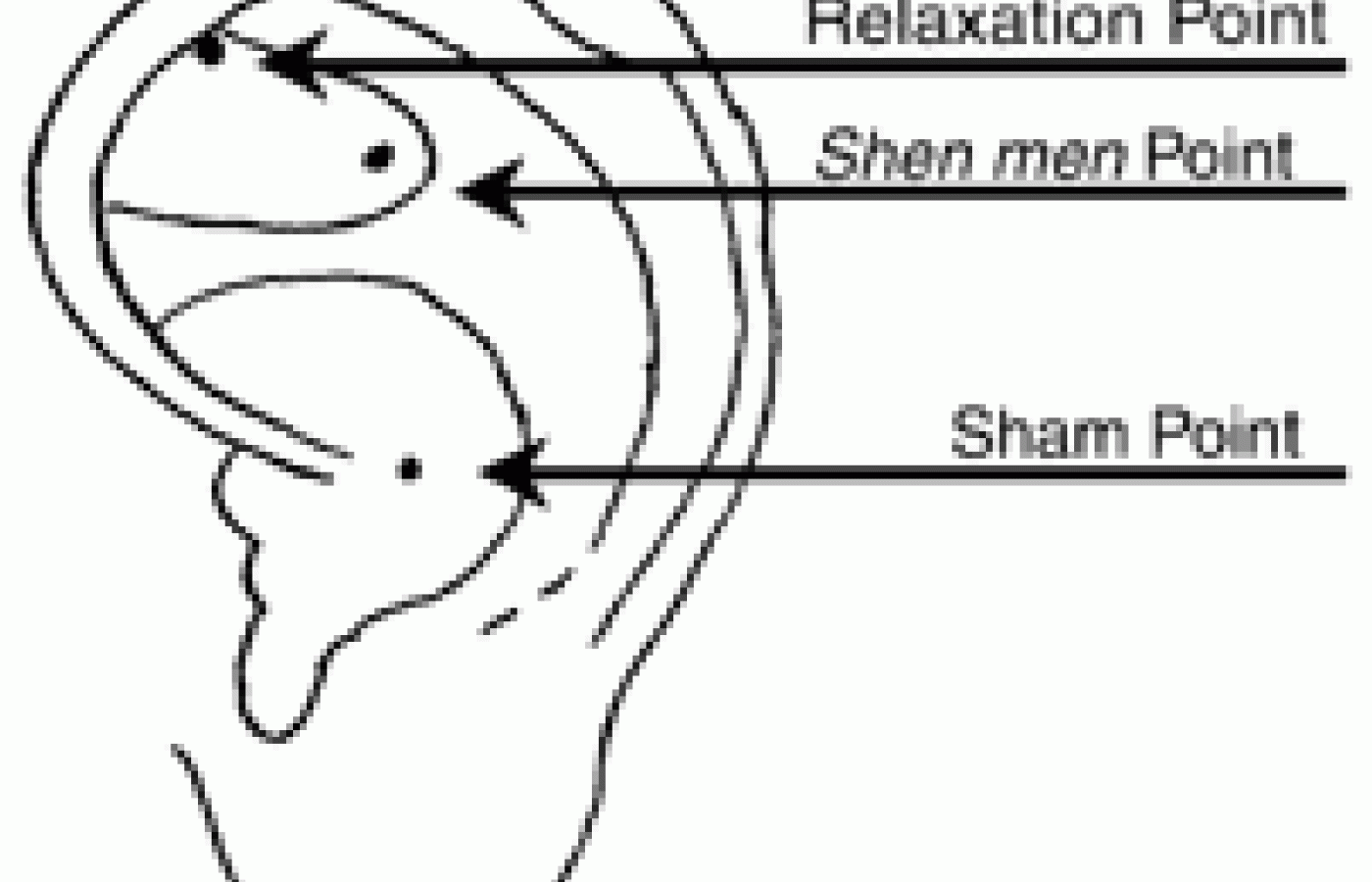The most important relationship I seek to nurture in the treatment room is the one a patient has with their own body. We live in a culture that teaches us to override pain, defer to outside authority, and push through discomfort. Patients often arrive hoping I can “fix” them, but the truth is, we can’t do the work for them. We can offer guidance, insight and support, but healing requires their full participation.
Auricular Acupuncture Effective in Treating Anxiety

In the past few years, studies in China and Europe have shown that a combination of body and ear (or auricular) acupuncture can reduce symptoms in patients with minor depression, chronic anxiety disorders and general anxiety disorders. However, few studies have examined the effect of ear acupuncture alone in treating anxiety. Moreover, many popular acupuncture textbooks have theorized that stimulating ear acupoints in and of themselves can help patients relax.
To test this theory, two researchers from the Yale University School of Medicine - Drs. Shu-Ming Wang and Zeev N. Kain - assembled a group of 55 patients for a blinded, randomized controlled trial to ascertain whether auricular acupuncture could decrease acute anxiety. The study found that while treatment did not produce any significant physiological changes, subjects who received acupuncture at a particular point did experience a profound change in their behavioral anxiety levels - an effect that, the researchers theorize, could help reduce the levels of pain and stress in patients undergoing surgery.1

The study population consisted of staff members of a hospital operating room - an occupation that, by nature, can generate a considerable amount of stress. Subjects were divided into three unequal groups of 22, 15 and 18 patients, respectively. The first group received bilateral auricular acupuncture at the shen men point, on the upper half of the ear near the inferior lateral wall of the triangular fossa. The second group received the same type of acupuncture at a "relaxation" point high on the ear, at the superior wall of the triangular fossa. The third group of patients received sham acupuncture at a point on the middle ear (see Figure 1).
Treatment was performed using occlusive press needles, which were kept in place for 48 hours and then removed. The patients resumed working immediately after the needles were inserted and continued their daily work routine during the testing program.
The anxiety levels of each patient were measured just prior to needling, and at intervals of 30 minutes, 24 hours and 48 hours after treatment. Anxiety levels were determined using a variety of methods, including the State-Trait Anxiety Inventory (STAI) scale, which measures feelings of apprehension, tension and worry; the Life Experiences Survey, which measures the significance of specific events in a person's life; arterial blood pressure; heart rate; and electrical activity on the surface of the patient's skin.
While all of the physiological traits measured -- electrodermal activity; heart rate; and blood pressure - remained relatively constant between all three groups, an important behavioral change on the STAI scale was noted in those receiving acupuncture at the relaxation point. Patients in the relaxation group reported being "significantly less anxious" than those in the shen men and sham groups at the 30-minute and 24-hour intervals, and remained "less anxious" than patients in the shen men group 48 hours after treatment began (see Figure II).
Based upon these results, the researchers theorized that auricular acupuncture could have a variety of applications for reducing stress and anxiety. In particular, they believed this technique could be useful in patients awaiting surgery - a group in which approximately two-thirds of all subjects experience "intense" levels of anxiety.2,3
"Although preoperative anxiety and the anxiety of healthy volunteers may be different, it can be hypothesized that auricular acupuncture may be equally effective for the reduction of anxiety by patients undergoing surgery," they wrote. "This is of particular importance as auricular acupuncture is technically easy, reliable, inexpensive, and is associated with minimal adverse affects."
Wang and Kain added that since several studies have documented an association between anxiety and pain, and that since ear acupuncture would appear to reduce anxiety for an extended amount of time, the use of acupuncture on a patient just prior to surgery could have a positive impact on that patient's feelings of pain and anxiety immediately after surgery. "It may be that preoperative auricular acupuncture may decrease postoperative anxiety and pain levels," they remarked.
The researchers did not explain how (or why) anxiety levels were lower for patients in the relaxation group, saying only that "the mechanism behind the observation made in our study is unclear." However, they noted previous studies suggesting that body acupuncture might affect the release of certain neurotransmitters such as serotonin, a chemical that may help determine a person's emotional state.
Although the number of patients treated was relatively small, Kain and Wang employed several testing methods to enhance the quality of the study. First, they made sure the study volunteers worked in the same type of environment, which helped ensure similar stress and anxiety levels for each group. Second, the researchers made sure the volunteers were present and working during the time of treatment. Finally, volunteers from all three groups were contacted daily, so that any unexpected changes in the volunteers' personal lives or work environment could be documented and factored into the final outcome.
Based on their findings, the researchers concluded that auricular acupuncture could decrease anxiety levels in otherwise healthy subjects. They added that "the results of the study suggest that acupuncture may be an effective treatment for individuals experiencing intense levels of daily stress and anxiety," and recommended "a randomized controlled trial be performed to evaluate the effectiveness of this technique for the treatment of preoperative anxiety."
References
- Wang SM, Kain ZN. Auricular acupuncture: a potential treatment for anxiety. Anesthesia and Analgesia Feb 2001;92(2):548-553.
- Ramsay MAE. A survey of preoperative fear. Anesthesia 1972;27:396-402.
- Johnston M. Preoperative emotional states and post-operative recovery. Adv Psychosom Med 1986;15:1-22.



